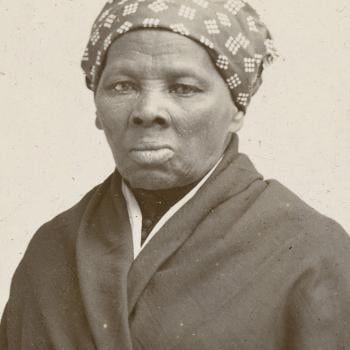 It's the 40th anniversary of Be Here Now. How have you evolved in the years between Be Here Now and Be Love Now?
It's the 40th anniversary of Be Here Now. How have you evolved in the years between Be Here Now and Be Love Now?
I went through an evolution that started around the time of Be Here Now thinking that the change that happened to me through Maharaji was due to the miracles that happened in his presence. That was then, but as I thought about it, I realized that it was not the power and the miracles that changed me but it was his love. Because in my first meeting with him, when he told me I had been thinking of my mother two nights earlier and that she had died of a spleen disease, I started to worry that if he knew that he knew all of the stuff in my mind -- and I looked up at him and there he was looking at me with unconditional love. That was the thing that I had missed for many years after that initial meeting -- it was the love that kept me in India that first time for six months when in fact I had planned to leave two days after I met Maharaji. My heart tuned to that love and I started to realize that the Guru connects with the devotee through love and that was what inspired me to write Be Love Now.
What are some of the most important lessons you learned in the East?
I would say that the main teaching that I got from the Eastern tradition was the concept of going inward for spiritual content -- it's not a matter of turning outward to an external God or church but rather the concept that in each of us is the manifestation of the divine know in India as Atman.
You talk about Saints who have achieved a state not known very well in the West. What wisdom can these people give us?
When I got to India I started to hear about these holy men and women, the Saints -- and they were unlike the saints in the West who were elected, so to speak, by the church. These saints in India were from the villages in rural India- -- they were very high beings, not like our intellectually high beings in the West, but these high beings were whole beings who emanated from the heart and displayed great powers. It seemed to me that we in the West ought to learn that these kinds of human beings do live in this world and they stretch the boundaries of human potential. And in this book I wanted to share their peace, their compassion, their love, their wisdom, and their joy in life. They are realized beings and we just don't have that concept in the West of the evolution of a human being.
Can you talk about the importance of Darshan and what that is?
Darshan is being in the presence of a holy being -- it's a heart to heart transmission either in silence or with words or physical gestures. It's the transference of an essence from one to another -- from one of these high beings to a devotee. They also mirror you -- Maharaji mirrored me. He showed me my soul because I could not find it by my intellect.
In Be Love Now you talk about the emotional heart and the spiritual heart. Can you describe the difference?
The emotional heart reflects the emotions we have in our daily life, negative or positive -- they are controlled by the mind and they are reactions to the senses. The spiritual heart is our soul and its only emotion is love -- the spiritual heart comes from the Atman, which is God within a human being. That's why it comes from such love. I think that when you have deep love for somebody there are times when that love is profound, which is the kind of love expressed from the spiritual heart.
In Be Love Now you say, "Love is a state of being not a trip from here to there." Can you explain that?
Maharaji is love and that's why you experience him as loving -- he's not loving you, he's just love. He's being love. So he loved me unconditionally -- I can't do that because I can't become love -- as long as I live in duality I can't be the state of love, but once a being has entered into the non-dual state of pure Atman and fully resides there -- then there is no act of loving, rather just a state of being love.
You also talk about pleasure, happiness, and joy. What are their differences?
Pleasure is something that comes through the senses -- where you are doing business with what is outside of you and that is the lowest attribute. The next one, happiness, is still worldly but has a benign attribute that brings with it a flood of positive emotion. Joy is spiritual -- it is a coming to the one because the one is a state of joy.
You were impacted by the death of your Guru. How does his teaching continue to enlighten you day after day?
When Maharaji left his body it was as if he changed a suit of clothes -- his essence remained the same with a body or without -- and I have remained in touch with his essence since I was with him physically 40-odd years ago and from the moment he left that body to this moment. And what I have shared of him over this time span has been remembrance of God, service, and love for everything in this world.
With Be Love Now coming out this fall, what do you hope readers will take away from this book into their daily lives?
I would like them to take away a spiritual view of their lives. I can look at the trees or I can look at the waves on the ocean and I see it all as the one -- as a manifestation of the one. I can look around me and all I see is the one. I would like the reader to stretch their concepts of human beings from meeting these realized beings in the book. And finally I want the reader of the book to acknowledge love, to really know and feel the bhakti path -- the path of love.
11/1/2010 4:00:00 AM




